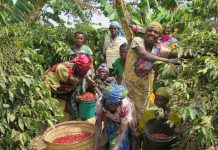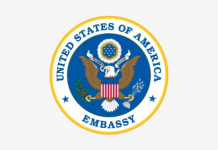Author: MEDDY MULISA
AfricaPress-Tanzania: KAGERA Regional Commissioner (RC), Brig Gen Marco Gaguti has appealed to residents on border areas to embrace business opportunities available in their areas.
Equally, he warned government officials impeding business growth and development at the borders, saying cross-border businesses have proved worthwhile to the economy of many countries.
“Border between a country and another is an opportunity to people living in the area. People should use border areas to do business and improve their standards of living, provided that they satisfy legal requirements and are paying taxes,” he said.
He said Kagera region has abundant investment opportunities, including tourism along Burigi-Chato National Park, minerals such as gold, tin and the Lake Victoria fishery resources.
Mr Gaguti made the remarks while closing a oneday symposium that attracted business people from the private sector, including members of the Tanzania Chamber of Commerce, Industries and Agriculture (TCCIA).
He assured them that after the Kagera Investment Forum (KIF) held in July, last year, a delegation of 53 business people was scheduled to visit several East African Community (EAC) member nations for a business exchange tour.
“Kagera region is a business hub due to its proximity to EAC member nations. A delegation of 53 business people had been registered for the business exchange tour. However, due to the coronavirus pandemic, the tour has been re-scheduled until later,” he said.
According to Mr Gaguti, the Lake Victoria fishery contributes immensely to the socio-economic development of the riparian states.
“The East African Community has designated the lake basin as an ‘economic growth zone’, with the potential to develop into a major economic region. The fisheries are vital in creating employment opportunities, mostly rural-based, thereby helping to reduce rural-urban migration,” he said.
Fish is also a rich source of animal protein for human consumption and provides raw material (fishmeal) for processing animal feeds.
The fish industry contributes to the GDP and has continued to be an important source of foreign exchange earned from fish exports.
Besides, the fish industry contributes to the national and local government revenues through various taxes, levies and licence fees.
The sector has also contributed directly and indirectly to the improvement of physical infrastructure and social facilities, such as roads, schools and hospitals, particularly in remote fishing communities.
Based on current stock estimates, the lake has the potential to yield fish valued over 800 million US dollars annually on a sustainable basis.
Further processing and marketing the fish in the local and export markets could provide opportunity to generate additional earnings.
Currently, however, only about 500,000 tonnes of fish is landed annually, with an average landing value of approximately 600 million US dollars, he said.







